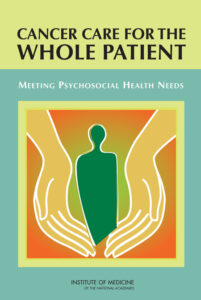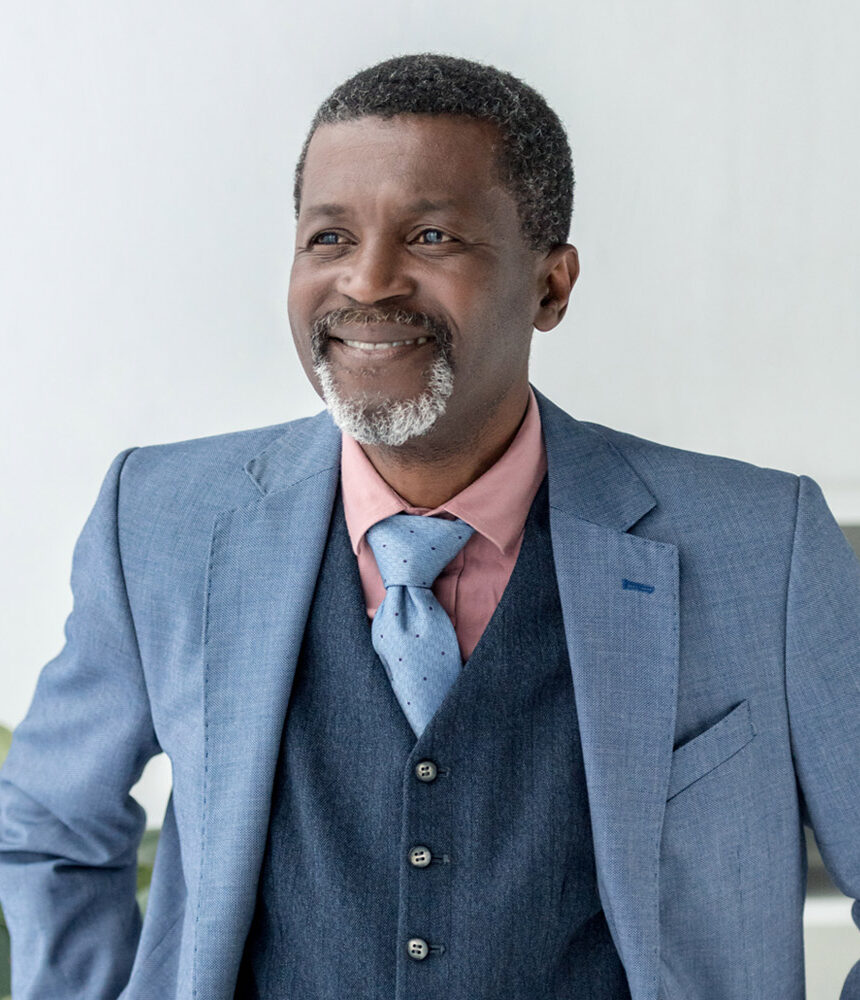FAQs
Frequently Asked Questions
By skillfully addressing all of the issues that come with a life-threatening illness, Beat the Odds, a comprehensive cancer survivorship program, gives you the opportunity to systematically improve your ability to deal with stress and adversity in any moment, improving your quality of life and, possibly, chances of survival.
Have questions about Beat the Odds? We’ve got answers.
1. Do I have to “stay positive” to get well?
Beat the Odds is not “you have to stay positive” type of the program. First it is practically impossible to stay positive all the time and placing such a demand on a patient only adds to the burden, may create sense of failure and guilt as well as increase the fear that any difficult emotion, any stress may harm them.
We know that these difficult emotions provide us with unique opportunities to learn from them. So, instead of trying to run away from them, pretend that they don’t happen, or use distractions, we teach ways of profound understanding of the attitudes, beliefs and thoughts that fuel them. We then can apply cognitive-behavioral techniques that enable the resolution of the suffering at hand and reduce the frequency and intensity of future such difficult moments. We teach ways of effectively dealing with emotional crises rather than asking to stay positive.
You may be asking if this program is for you. Yes, it is. Of course you are coping the best you can but with some training, you learn how to improve on that. As research has shown, there is a lot that can be done to complement your current cancer treatment, improve your quality of life, reduce stress, expand social support and increase the odds of getting well.
Also, there are many lifestyle modifications that may enhance survival and quality of life like increased physical activity, healthy nutrition, getting proper sleep and rest, expanding social support, experiencing fun, laughter and joy, connection with nature as well as creative expression. These elements are part of the Beat the Odds program and the the focus of Boost the Odds, which is dedicated for the alumni of Beat the Odds and is focusing on lasting healthy lifestyle modification without deprivation, stress or guilt.
However, we don’t control our odds and there are no guarantees that even if we apply all these skills and lead the healthiest lifestyle, we won’t experience recurrence or another cancer. We know, however, that the quality of our life improves when we apply theses skills and the quality of life, not the length of survival, is the focus of our program. Extended survival time may potentially be a by-product of enjoying the life itself and its better quality. So, even though many our participants first ask their doctors “How long will I live?”, we encourage them to focus on the question “How will I live?”.
Click here to read more about these research findings.
2. But I’m already coping the best I can! How could I possibly cope any better?
Of course you are. But, as with any other skill, there is always room for improvement. Just like great athletes practice regularly to improve, this program can help you improve your coping skills.
People who cope successfully at times of extreme stress can be less effective at other times, and can benefit from improving their coping skills, especially as the world around us gets more and more complex.
While we present areas for improvement, our program also allows you to further strengthen and expand on the things you’re doing right.
Emotional growth and skill-building are at the heart of our comprehensive cancer survivorship program. We teach modern, research based methods for better coping so you can:
- Manage symptoms such as pain or nausea.
- Develop healthy beliefs about your illness and prescribed treatments.
- Harness the power of your mind and imagination to work for you.
- Effectively resolve emotional crises.
- Address spiritual issues.
- Effectively deal with fear, worry, blame, resentment, and guilt.
- Integrate matters of life and death in a healthy way.
- Tackle communication challenges with your loved ones about your support.
- Strengthen and maintain hope.
- Develop an action plan.
3. How can my mind help me heal from cancer?
Our bodies are naturally equipped with multiple mechanisms to maintain and restore health. There are many ways our organisms recognize and eliminate cancer cells or transform them back to healthy cells.
As a matter of fact, cancer cells have never been shown to digest healthy cells, but our immune cells have shown the capacity to destroy cancer cells.
These immune cells, as well as other healing mechanisms, operate under the influence of the brain via nerve connections, hormones, neuropeptides, and other substances.
The brain, nervous system, and immune system communicate through a feedback loop that has an unparalleled capacity to affect healing on the molecular, cellular, tissue, and organism levels. With proper lifestyle these changes make our bodies inhospitable to cancer cells.
Our bodies are capable of employing very intricate healing processes, automatically, whether we know about it or not.
With each passing year we are discovering new healing mechanisms beyond immunology (DNA repair, apoptosis, etc.), as well as evidence that we have only scratched the surface in our understanding of the body’s innate healing potential.
Modern therapeutic techniques, like cognitive-behavior therapy, as it is employed in our program, have been proven to cause permanent changes in the structure of the brain making it more resistant to anxiety, fear, depression and other difficult emotions.
The utilization of cutting-edge psychological interventions and techniques translates into improved quality of life and healing for our patients.
To see how our bodies can identify and eliminate cancer cells from our bodies you can view these Videos.
The following articles of leading experts in the field give in depth review of the mechanisms involved in the healing from cancer that may be influenced by mind-body interventions like the Beat the Odds® program:
Lutgendorf, S. K., & Andersen, B. L. Biobehavioral approaches to cancer progression and survival: Mechanisms and interventions. The American Psychologist, 70(2), 186–97. doi:10.1037/a0035730 http://www.ncbi.nlm.nih.gov/pmc/articles/PMC4347942/
Spiegel, D. (2012). Mind matters in cancer survival. Psycho-Oncology, 21(6), 588–93. doi:10.1002/pon.3067 http://www.ncbi.nlm.nih.gov/pmc/articles/PMC3370072/
Click here to read evidence that psychological interventions can increase the likelihood of survival.
THE SCIENCE AND PRACTICE OF BEAT THE ODDS
The presentation “Beat the Odds – Healthy Hope with Evidence-Based Cognitive-Behavioral Interventions” by Mariusz Wirga, M.D., at the City of Hope Medical Grand Rounds
4. What is the evidence that pyschotherapeutic interventions really work?

n 2008 Institute of Medicine, the most respected source of medical practice guidelines, published Cancer Care for the Whole Patient: Meeting Psychosocial Health Needs with over 400 pages of best scientific evidence that psychosocial interventions are vital for cancer patients and their families. They stated, “Cancer care today often provides state-of-the-science biomedical treatment but fails to address the psychological and social (psychosocial) problems associated with the illness.” This failure can compromise the effectiveness of health care and thereby adversely affect the health of cancer patients. Psychological and social problems created or exacerbated by cancer—including depression and other emotional problems; lack of information or skills needed to manage the illness; lack of transportation or other resources; and disruptions in work, school, and family life—cause additional suffering, weaken adherence to prescribed treatments, and threaten patients’ return to health.
A range of services is available to help patients and their families manage the psychosocial aspects of cancer. Indeed, these services collectively have been described as constituting a “wealth of cancer-related community support services.”
Today, it is not possible to deliver good-quality cancer care without using existing approaches, tools, and resources to address patients’ psychosocial health needs. “All patients with cancer and their families should expect and receive cancer care that ensures the provision of appropriate psychosocial health services.” This report also stated, that in the United States it is rather an exception than a rule that such interventions are actually delivered. Beat the Odds at Todd Cancer Institute is therefore a unique program that implements IOM guidelines.
Simonton’s preliminary study found that patients who participated in his program lived on average twice as long and had a better quality of life. There was an increased number of long-term survivors in his program, and those who died had an improved quality of death.
While his publications originally sparked both excitement and controversy, Simonton’s results were confirmed by five other studies meeting the best research standards: randomized clinical trials quoted below.
At Stanford University, Dr. David Spiegel (1989) studied women with advanced breast cancer, in which all subjects received conventional oncology treatment, while half of the subjects also participated in psychotherapy. As in Simonton’s study, women in the group who participated in psychotherapy, as well as conventional treatment, had double the average survival time and improved quality of life. There were also a higher number of long-term survivors.
Dr. Fawzy Fawzy (1993) had similar findings in a study of malignant melanoma at UCLA and concluded that improved coping with everyday stress had an impact on the biological course of the disease.
The randomized clinical trial by Dr. Thomas Küchler (2007) from Kiel in Germany has shown that patients with GI cancers (esophagus, stomach, pancreas, liver/gallbladder, and, colon/rectum) benefited from a psychotherapeutic program in terms of survival when compared to patients who did not participate in such a program.
The most robust clinical trial lead by Dr. Barbara Andersen (2008) at Ohio State University has shown that women with breast cancer participating in a group psychological intervention program reduced the risk of breast cancer recurrence by 45 percent. What’s fascinating is that intervention group participants that had a recurrence of cancer years later still had a stronger immune function, less stress, and lived, on average, longer than those who didn’t take part in the group intervention (See: Andersen et al, 2010 ).
Dr. Andersen concluded, “If psychological interventions to reduce stress are delivered early, they can improve mental health, health, and possibly even their odds of survival.”
More recently, at the University of Miami, 240 women with a breast cancer diagnosis took part in a randomized trial that tested the effects of a cognitive-behavioral stress management intervention developed by Dr. Michael Antoni and it also provided survival benefits to the participants. “Women with breast cancer who participated in the study initially used stress management techniques to cope with the challenges of primary treatment to lower distress. Because these stress management techniques also give women tools to cope with fears of recurrence and disease progression, the present results indicate that these skills can be used to reduce distress and depressed mood and optimize quality of life across the survivorship period as women get on with their lives,” said lead author Dr. Jamie Stagl (2015).
In 2020, a large systematic review and meta-analysis looking at the psychosocial interventions and immune function found that “psychosocial interventions were associated with improvements in immune system function over time—in particular, with decreased proinflammatory cytokines or markers and increased immune cell counts—and that these associations were most consistent for interventions that incorporate CBT or multiple interventions. Given the effectiveness and relative affordability of psychosocial interventions for treating chronic disease, we suggest that psychosocial interventions may represent a viable strategy for reducing disease burden and improving human health” (Shields et al, 2020).
Dr. Simonton’s mind-body approach to treating cancer patients has been implemented and shown to be effective in different cultures throughout the world, regardless of background, race, or religion.
For an explanation of mechanisms how our mind and reduction of stress may influence healing please check FAQ 3 How can my mind heal cancer?
5. What if I don’t have the energy or hope to engage in any more treatment?
Not only does the Beat the Odds program teach specific techniques to increase energy, the main focus of the program is increasing hope and joy. The only side-effects of the program are desirable ones, including reduced stress and fear, more peace of mind and improved quality of life.
Regardless of your condition or current mindset, you have nothing to lose, and everything to gain.
6. Does it work with other diseases?
Yes, this approach is effective with many diseases, both chronic and acute, and works in harmony with standard treatments. We offer courses for patients with non-oncology, life threatening and chronic diseases and their family members through our Wellness Psychiatry program: -->
7. How much does it cost?
The cost of the Beat the Odds program is covered by most health insurance plans. Please contact our office at (562) 427 3897 during normal business hours (9 a.m. – 5 p.m.) so our staff can obtain prior authorization for you and your support person.
Third-party payors usually cover all group sessions, the initial individual evaluation, and, if needed, individual or couples sessions. Co-pay costs vary among insurance carriers, but it’s usually a nominal fee.
For those who are uninsured or have plans that do not cover this program, we recommend asking us about limited scholarship funds.
The Beat the Odds courses led by Erin Sommerville, Mind-Body Oncology Coach, are free of charge and no insurance is necessary.
8. Do I need a referral?
You do not need a referral for the program. However we will need to contact your oncologist so we can obtain information about your illness.
9. Do I have to bring a support person?
Please call our office at (562) 427 3897 to sign up for the Beat the Odds program. The Beat the Odds program consists of ten weekly classes. The classes begin at 6 p.m. and end at 8:30 p.m. and are held at the Treatment Planning Room, Todd Cancer Pavilion, 2810 Long Beach Blvd, Long Beach, CA. Refreshments are available.
Erin Sommerville – Mind-Body Oncology Coach at Todd Cancer Institute – also provides Beat the Odds courses at the same location but in the morning hours of 9:30 am to 12 noon. Erin’s classes are free of charge and no insurance coverage is needed. For more information about Erin’s classes please call her at (562) 933 9520.
The dates are subject to change. Please consult the calendar for the most recent schedule.
All participants will be asked to fill out the confidential Intake Form that can be downloaded here .
We recommend that you bring at least one primary support person. It can be a spouse, friend, roommate, or family member.
Have a question we didn’t answer here? Please contact us and we’ll be happy to answer it for you.
10. How do I enroll in the Beat the Odds program?
You may attend by yourself, but over the last 25 years, we’ve found that having a support person present greatly increases the likelihood you’ll be successful in the program. This is because our program doesn’t just help you cope better and improve your quality of life, it’s also designed to help your support person be more effective and healthy while preventing burn-out and reducing stress.
Therefore, we strongly encourage you to participate with your spouse or someone who is truly committed to your healing.

Tobby May


Peter Lee

Let Us Make the Smart City Green
If you love art, you not alone. Be the first who see it!

